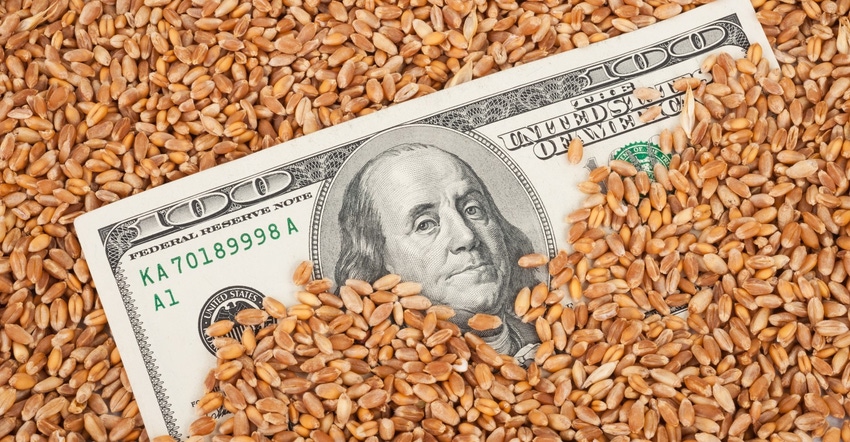
In accordance with the White House memo, Regulatory Freeze Pending Review, USDA has suspended the processing and payments under the Coronavirus Food Assistance Program - Additional Assistance and has halted implementation until further notice. Farm Service Agency local offices will continue to accept applications during the evaluation period, USDA says.
USDA’s Farm Service Agency previously announced Jan. 15 it would be accepting new or modified CFAP applications from eligible producers January 19 through February 26, 2021. Certain producers were to receive updated payments automatically with the estimated $2.3 billion that would be available. The Consolidated Appropriations Act of 2021 provided an additional $13 billion to help farmers and ranchers continue to recover.
Before leaving office, the Trump administration’s USDA expanded eligibility for some agricultural producers and commodities as well as updating payments to accurately compensate some producers who already applied for the program. Some of these changes were made to align with the recently enacted Consolidated Appropriations Act of 2021 while others are discretionary changes being made in response to ongoing evaluation of CFAP.
Related: USDA reconciles issues with CFAP
The latest round allowed for payments to contract growers who were previously left out of initial rounds of CFAP aid, as well as adjusting some payment calculations. FSA is also providing an additional CFAP 1 inventory payment for swine to help producers who face continuing market disruptions from changes in U.S. meat consumption due to the pandemic. Additional money was provided for producers who had to euthanize animals, however, USDA has not finalized how those payments will be allocated.
Incoming Senate Agriculture Committee Chairwoman Debbie Stabenow, D-Mich., says she agrees with the idea of pausing and reviewing where things stand with the latest CFAP update. She’s been outspoken in recent months in her concerns with the inequality of how different segments were given preferential payments.
“I think a review makes sense,” she says, adding it will be beneficial to review what dollars have been used and where USDA can make sure to effectively use the dollars that remain.
According to the CFAP 2.0 dashboard, USDA approved a total of 891,119 total applications for $13.2 billion. Corn producers received the most with $3.4 billion, followed by cattle producers at $2.8 billion. CFAP 1 provided $10.5 billion in payments to the approved 652,233 applicants. In that round cattle producers received $4.3 billion, followed by milk producers at $1.8 billion.
Review warranted
“The pandemic has taken an unprecedented toll on American agriculture, and the Coronavirus Food Assistance Program has provided a lifeline for farmers and ranchers across the country. Many growers who previously did not qualify for assistance continue to suffer losses and need the help CFAP provides,” notes American Farm Bureau Federation Zippy Duvall.
Duvall adds, “We recognize the new administration’s desire to review important farmer and rancher assistance programs, and we urge USDA to take into consideration our comments on how to improve such programs. We appreciate that CFAP applications will continue to be accepted, and we encourage the swift resumption of distribution of resources to the people who are working to keep America’s pantries stocked.”
The Consolidated Appropriations Act of 2021 allocated a minimum of $1.5 billion for food purchases and loans and grants to help small and midsized food processors or distributors, seafood processing facilities and vessels, farmers markets and producers respond to COVID-19, including providing protection for employees. Stabenow says additional focus should be on helping protect farmworkers from the spread of COVID-19.
Farm Bureau detailed several of its suggestions on allocating the additional funds in a letter to Kevin Norton, acting deputy undersecretary for Farm Production and Conservation, and Steve Peterson, acting administrator of the Farm Service Agency.
“We urge the Department to consider how any remaining funds can be used to supplement the $11.2 billion in assistance appropriated in the Consolidated Appropriations Act of 2021 to further support farmers, ranchers and our agricultural processors, such as dairy, textile and biofuel processors,” Duvall writes in the letter. “In particular, we urge the department to provide additional financial relief to help farmers offset ongoing financial losses or additional costs resulting from COVID-19, e.g., contract growers who continue to suffer from the loss of an integrator or continue to experience reduced livestock or poultry throughput from their integrator. Increasing financial and technical resources for on-farm COVID-19 mitigation efforts to protect farmers and farmworkers should also be considered.”
The Farm Bureau also says it supports payments to producers of advanced biofuel, biomass-based diesel, cellulosic biofuel, conventional biofuel and renewable fuel.
In its notice, UDSA says in the coming days, USDA and the Biden administration intend to take “additional steps to bring relief and support to all parts of food and agriculture during the coronavirus pandemic, including by ensuring producers have access to the capital, risk management tools, disaster assistance, and other federal resources.”
Related: USDA to temporarily suspend past-due debt collection
Earlier in the week USDA announced that it will temporarily suspend past-due debt collections and foreclosures for farmers borrowing under the Farm Storage Facility Loan and the Direct Farm Loan programs while also offering flexibilities under the Guaranteed Loan Program. Additionally, the agency plans to halt foreclosures and evictions that are already underway. Approximately 12,000 farmers, representing 10% of Farm Service Agency borrowers, will be eligible for this assistance.
About the Author(s)
You May Also Like






